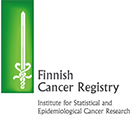Why EU-TOPIA? 
Breast, cervical and colorectal cancer cause more than 250,000 deaths each year in Europe. This represents 20% of overall cancer mortality. While substantial progress has been made in the detection and treatment of these cancers, there is a persisting inequality in cancer burden across European countries.
Screening has been introduced in several European countries in an effort to reduce cancer burden. However, these programmes vary considerably and the long-term effectiveness of screening has only been assessed in a few. In an effort to identify opportunities to improve cancer outcomes across Europe, EU-TOPIA (Towards improved screening for breast, cervical and colorectal cancer in all of Europe), a five year project (2015-2020) funded by the European Commission’s Horizon 2020 programme, is now underway.
Why EU-TOPIA?
EU-TOPIA aims to systematically evaluate and quantify the harms and benefits of screening programmes for breast, cervical, and colorectal cancer in all European countries. Armed with this important information, we hope to identify ways to improve health outcomes and increase equity.
EU-TOPIA will lead to
- reduced inequity in cancer burden
- fewer cancer deaths
- less over-diagnosed cases
- improved quality of life
- more cost-effective cancer screening programmes
Using a health-policy cycle approach, EU-TOPIA, in consultation with screening researchers from across Europe, will develop key quality indicators to quantify the benefits and harms of screening and develop country-specific decision models to estimate the long-term harms and benefits of screening.
We will create three web-based tools (monitoring, model-quantification and barrier assessment) that will support researchers and policy makers to develop, implement, evaluate and monitor existing or future screening programs within their country. These tools will be presented at four workshops and can be used by country representatives (researchers and policymakers) for self-evaluation of screening.









